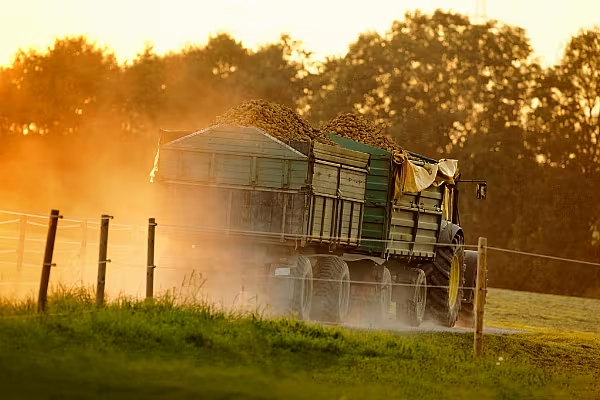The U.K. government needs to agree a transition deal with the European Union to prevent the "potentially disastrous" effects on the nation’s farms of trading on World Trade Organization terms, according to a parliamentary report.
A phased transition when Britain leaves the EU is essential, particularly for the agriculture and food industry, so the U.K. has time to negotiate trade deals with other nations, according to a House of Lords panel. The EU makes up about 80 percent of Britain’s agricultural export market.
“Trade, especially with the EU, is really important for the agri-food sector,” Lord Robin Teverson, who chaired the upper house sub-committee that drew up the report, said in a statement. “It is unlikely that a comprehensive trade deal with the EU will be negotiated before Brexit, so a transitional deal is vital to avoiding a ‘cliff edge’ for farmers.”
British farms rely heavily on workers from the EU, and the industry is already struggling to fill vacancies, exacerbated by uncertainty over Brexit, the panel said in its report, citing evidence from experts. A seasonal workers’ scheme alone won’t be enough to secure labor as both temporary and permanent staff are needed, the committee reported.
Assistance
The panel urged the government to help farmers and food processors on recruitment, and reiterated a call for the U.K. to clarify the rights of EU nationals living and working in the country.
“Unless arrangements are made to preserve access to labor from outside the U.K., the agri-food industry will suffer major disruption,” it said in the report published Wednesday.
Exiting the EU’s Common Agricultural Policy, which regulates free trade in agricultural and food products in the bloc and provides funding for many farmers, will offer challenges and opportunities, according to the committee.
It will allow the U.K. flexibility to develop its own policies to better meet farmers needs, the panel said, citing criticism of the CAP for being "bureaucratic and misdirecting financial support.” At the same time, many farmers rely on its funding to sustain their businesses.
“Life after the EU’s Common Agricultural Policy will not be easy for the many U.K. farmers who rely on its financial support,” Lord Teverson said. “But leaving the EU is also an opportunity for the U.K., and its constituent nations and regions, to move away from the EU’s ‘one-size-fits-all’ policies on farming and food. ”
News by Bloomberg, edited by ESM. Click subscribe to sign up to ESM: The European Supermarket Magazine.














